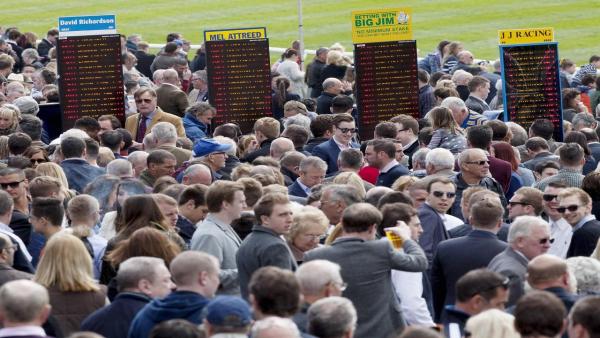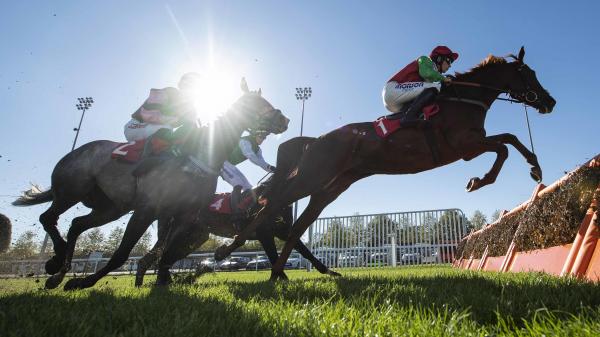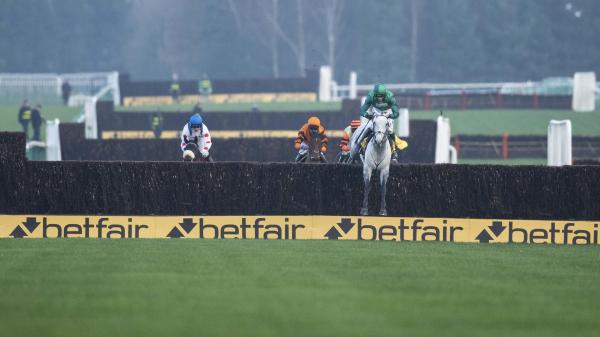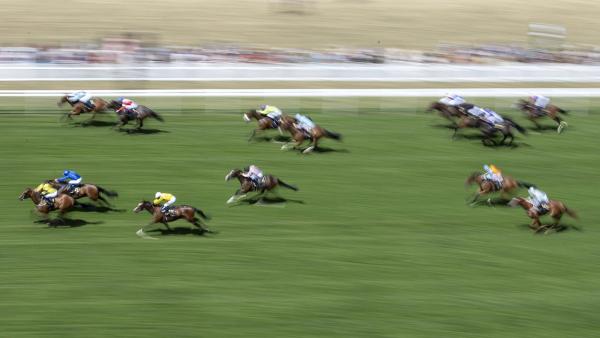I’ll be straight with you.
When I was asked to write a series of articles about how I make betting pay, and the strategies involved therein, my first answer was “thanks, but no thanks.”
It didn’t really strike me as my bag at all.
I think we have all read similar pieces in the past few weeks as various websites look to fill racing’s downtime, as well as having listened to many of Simon Nott’s podcasts, in the last two years or so, with any number of industry and media types and racing betting professionals.
Now, I know this could come across as a touch arrogant, but I can’t readily recall one piece of new, worthwhile advice that I have read or heard that wasn’t very obvious or was particularly helpful.
Indeed, I have been very surprised that some people have basically gone public with the fact that they make money by using inside information and gossip – fair play if you can make that soul-less route pay – or by following in warm punters in by effectively acting as commission agents.
Sure, most, if not all, of the interviews include a central plank of common sense – and it was interesting to hear about different approaches – but nothing revelatory in the main.
So the idea of my spinning out a series of articles on the subject was clearly a complete no-no from the off.
However, on further reflection, I reckoned – hopefully, at least – that I could get one piece out of it.
This won’t be your usual “betting masterclass” article though, and I have probably been a bit too honest.
But ‘if a job is worth doing’, and all that.

Available-to-all exchange punting a godsend
The problem I had with doing a series is that betting is fundamentally an individual pursuit, and there are numerous ways of potentially skinning, in the friendliest way possible, your favoured bookmaker.
What works for one successful punter will not work for another of similar merit, be it because of mindset and temperament, skill-set, or simple opportunity.
For example, and this is an uncomfortable truth, those in the racing media – horrible phrase, but there you go – are generally (but certainly not universally) afforded a lot more rope in their pursuit of winning with the layers then you average Joe or Joan.
Too much rope, and credit, on occasions, as the occasional one or two have spectacularly failed, as most of the racing gossips will know, even to the tune of bankruptcy.
Of course, betting on credit, and hopefully by extension the offering of private credit, has now been reined in after directives from the Gambling Commission.
Anyway, I digress.
Personally, I am mainly a Betfair exchange punter, so that available-to-all solution is a godsend.
If you are going to write these pieces you have to be honest and tell the truth, though. Otherwise it tends to become general, non-specific hot air.
I also have three bookmakers that are prepared to stand my bets, usually to a level that interests me, so that is very helpful, too.
Not ideal, but I am certainly not complaining, as that at least allows me the freedom of betting in my own name and not going down the dreaded, and tiresome, friends-and-family route every time I want a fixed-odds-bet (though of course there would not be a semi-serious bettor out there who doesn’t tap up those acquaintances when needs must).
So that is my basic starting point for the article.
The motive is clear, but those are the means and the opportunity by which I try and achieve profitability.
Identify the avenues that are open to you, and come to terms with that fact. Accept what you cannot change and access.
Instinct plays a big part in my betting
Like everyone else, I wish Oddschecker would allow you to block out certain books whose prices you can’t take advantage of, however hard you try.
The most soul-destroying part of punting is sitting and looking at a price for hours that you know is wrong, but simply can’t touch!
It could be that I am simply not observant, or have missed plenty of examples, but the striking thing about the aforementioned interviews and betting masterclasses, for the want of a better description, podcasts and articles is the absence of the word “instinct.”

Basically, betting to me is largely about instinct, instantly knowing when you see a wrong price. And there is often a very narrow window of opportunity when you do.
And that is obviously personal, and borne out of experience, both painful and pleasurable.
I am not talking about picking out a 33/1 chance, when 16/1 is the next best price in the Oddschecker boxes and it is [26.0] on the exchange, I am referring to when a bookmaker is first up pricing a race, or evaluating in-running odds in a split second.
Take advantage of too many of the former and you can generally kiss your account goodbye, sooner rather than later – unless you are one betting on an exchange or those rare accounts deemed an acceptable steer – but the latter should be regarded as fair game for both backer and layer.
Know your sport but balance is also key
I was quite slow to the Betfair party and only started betting on the exchange in 2002 but I immediately discovered that in-running betting on rugby matches came naturally to me.
Mainly, because I found out that I could spot any number of in running “ricks” throughout a rapidly-changing match, and quickly trade myself into big winning positions – or “green books” – regardless of what happened by the final whistle.
And often around the draw, which was jackpot time if it materialised.
Could I tell you now how I identified these “ricks”?
No, it was simply a matter of knowing your sport and acting on pure immediate instinct and intuition, and not hesitating.
I’ll be honest, it got so intoxicating and easy (again, sorry for any arrogance there but it did just all fall into place, whether by luck or judgement) that I made myself a 1/10 chance to win by trading on any rugby match.
And I responded by basically betting on, and throughout, every single live game from the early southern hemisphere Super Rugby hours of Friday morning until the final Super League match on Sunday night, and effectively didn’t go out.
I blotted out any social life.
And, as I had a very young family at the time, I don’t look back on that period with any great deal of pride or satisfaction.
I was glued to the screen from waking to sleeping.
Sure, I won a lot of money for at least a five-year period from 2002-3 onwards (the early days were the years for many savvy punters), mostly on rugby but also horse racing too, but I now know it was a very unhealthy period in the round.
A profitable, but vicious, circle.
So, looking back, balance is absolutely key, and I practice that a lot more now. A lot more.
But one thing that hasn’t changed is individual instinct and intuition remains the indefinable element of betting, and no-one can pass that on to the next punter, which is why betting strategy columns and interviews rarely float my boat.
If they help others, then great.
Anyway, let’s focus on the present now and maybe I can aid you in my current betting routines.
Know your tipster, never chase and only bet what you can afford
As you may have guessed from the above, whatever you may have read or heard elsewhere, there is no magic bullet in turning a losing punter into a winning one.
It may be a harsh statement but a list of stark dos and don’ts is not going to revolutionise anyone’s punting to any significant degree, and the generally accepted statistic is that 98% of sports bettors lose (possibly a touch less, depending on different arenas of punting, but that I’d say that is in the ballpark).
Again, being cruel to be kind, a loser to date is a loser for a reason.
So, let’s get that straight from the outset, though the general, oft-trotted fundamental planks of “good” betting clearly stand close inspection and there is clearly scope for the vast majority of punters to up their game, at the very least!
For a start, everyone should be keeping a strict profit and loss on their betting – and you don’t have to do it yourself, as bookmakers should allow you to search that quickly on their site (or provide it on request) – and, similarly, you shouldn’t be in a rush to follow any tipsters who don’t similarly display their records (or give an indication of what price you should be willing to take, too).
There have been a couple of internet-based tipsters recently who have come out as problem gamblers, so be very careful who you listen to.
Know your tipster.

Do not chase losses – there is always a tomorrow when it comes to betting, even in these desperate times, and I thankfully have never had that problem – and never bet beyond your means are the other obvious areas of behaviour.
The most important, in fact.
And, quite clearly, never punt on an event you have no knowledge of, as nothing good can come out of dipping in and out of a subject – or if you are simply following in tipsters (and there are plenty of excellent ones out there), make sure you get their proofed profit and loss – and don’t bet out of boredom or because of a lack of sobriety.
Some of my casino losses can certainly underline the wisdom of the latter.
I have had some very nasty surprises the following morning I can tell you, and they take a while to get over.
I have had some glorious wins, don’t get me wrong, but if you log in and find that you have lost an eye-watering sum of money it takes a very strong mindset to re-focus.
But beyond those basic tenets, everything else comes down to personal choice, hard work and talent. And that ever-elusive sixth sense too, I guess, as uppity as that sounds.
Being selective and keeping the mind fresh
Some people in the City can look at a company’s balance sheet, and spot a financial angle straight away, and the same is true of betting opportunities.
So I can only take you through what I do and how I bet now, and if you find some of my approaches resonate then great.
I’ll be honest. I occasionally still dabble on the live casino if I am at a loose end, but nothing as extreme as in the past.
I’m a gambler, after all, and if people want to be high-brow and snobby about the fact that I do, then so be it.
I keep a fair few quid in my accounts to consistently make serious betting pay, so I don’t have any problem with having the odd fire-up, though certainly not at any levels these days that are going to have me sulking (much) either way, just as I would if hitting a casino (or card room) in person.
Rugby remains a decent, consistent earner, though not to the pre-Premium Charge-levels of the early noughties – I haven’t watched a league game in years, and trade only about half of live union games now – but horse racing is my number one betting medium.
I have actually been far more selective with my racing punting in the past couple of years, and tend to only bet when I have researched a card in great depth, as it should be.
So the low-fare stuff at the start of the week has largely been confined to the back-burner, unless I have the odd shift on Racing TV (which necessitates a runner-by-runner analysis).
However, the positive bi-product of that more selective approach is that it gives you valuable down-time away from an unhealthy daily grind of betting, and instills that life balance that was missing all those years ago.
Keeping fresh is clearly a key part of life, and it is doubly true of betting. It is very easy to become stale and lazy. And lose.
Of course, I will have the occasional bet on the lesser early-week stuff, but giving yourself two or three days off does wonders for the state of mind.
And, trust me, my mind has been in some states.
An early-week break also allows you the time to have a proper study of the upcoming weekend ante-post markets, which obviously have a classier feel to them.
You won’t get much on these days, and the exchange now only tend to put up markets on the major weekend races, but even if you don’t end up betting it serves as valuable early weekend prep at the very least.
Analyse each runner and beware of multiple entries
I do an ante-post column here on Monday or Tuesdays and I have started to tip and bet more on the weekend action in the past year or so.
I tend to leave the longer-range action alone, and didn’t have one ante-post tip on Cheltenham this year.
This approach has been a success financially – playing a 0-0 draw on Cheltenham ante-post tipping is a real result for many! – but the downside is you will do your money in cold blood a fair amount of the time.
So it is definitely a matter of taking the rough with the smooth, and picking your battles.
Again, I don’t think there is much practical guidance I can give you here, but you obviously have to be sure you are getting a much bigger price on the Tuesday than you will get on Friday, especially if betting each-way.
Nine times out of ten, you will get better place terms come the weekend day-of-race markets.
The best piece of advice when looking through any ante-post market is to go through each runner individually and look for the number of weekend entries they have.
Leave this as late as possible, as they could have alternative engagements in Ireland and further abroad too, especially if you are analysing Group and Graded races.
My general suggestion would be not to back any horse ante-post with multiple weekend entries, unless you know for sure what the intended target is.
And even intended targets have the very annoying habit of being changed later in the week, too!
Watching many replays an obvious angle
The general rule about how you decide on your ante-post selection is similar to the day-of-race approach.
Firstly, a lot of people will say keeping a tracker of horses that have caught your eye is essential, but I think that makes you lazy and myopic. Come to each race with a fresh and open mind is my advice.
The grind of form study is a given, and I factor in time and sectional analysis when I can gather it from elsewhere, and I totally ignore any paddock talk for example – I am far too lazy to do the stopwatch stuff myself, so I would add knowing your limitations is other sage advice – but the basic and best way of finding winners is just obvious.
Watch as many replays as you can.
Like anything else in life, the more work you put in, the luckier you will get.

Of course, people see different things when watching the same horse, so that in itself is no route to riches.
It all comes down to personal interpretation again, and your own talent. If you are good (and hard-working), then you will continue to be good, the inevitable shocking short-term runs aside.
Never be afraid to back a drifter
What I can try and help you with is staking.
Always try and go into every race with a very clear minimum price you are willing to take – as annoying as letting a winner go at 2/1 when 9/4 was your cut-off point, you have to have some basement level in your mind – and never be afraid to go in again if your fancy drifts.
Now, I know people hate it when a horse drifts and many won’t bet in those circumstances – and we all are aware of punting yards etc – but you have to bet in the belief that all horses are trying.
And that is where concentrating on the classier end of proceedings undoubtedly helps.
So the next time you hear somebody utter that they didn’t back a horse they fancied because the price was too big, do them a favour. Ask them to repeat back what they just said, out loud.
Look, I am sure this hasn’t been of any particular help and the simple fact is that most people lose in betting, so punting responsibly and comfortably within your means has to be the number one advice anyone tells you.
Horse racing and betting is fun. But making them profitable has to be largely a personal and individual pursuit, I am afraid.
There is no magic bullet, no matter what anybody may claim.
If there was, it would be redundant in an instant anyway, as all the winners would be firing it from the same gun.
***
Be sure to check out the other volumes in our Betting Masterclass series, listed below:
Volume 1 – Ed Hawkins on Test Match Cricket
Volume 2 – Ed Hawkins on Twenty20 Cricket
Volume 3 – Ed Hawkins on how to bet on ODI Cricket
Volume 4 – Mark O’Haire on the football stats that don’t matter
Volume 5 – Mark O’Haire on benefits of data and beating the closing price
Volume 6 – Mark O’Haire’s perfect football punt checklist
Volume 7 – Steve Rawlings on how to make golf tournament bets
source https://casinonewsblogger.com/tony-calvin-on-how-he-makes-racing-profitable/
No comments:
Post a Comment